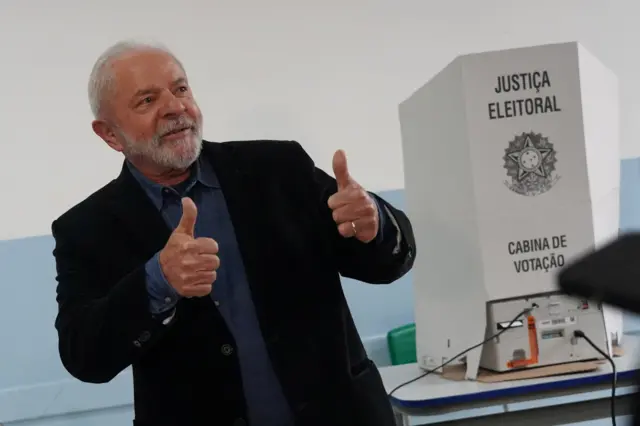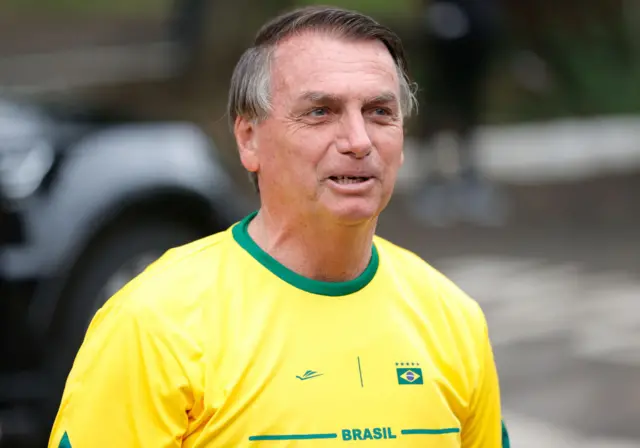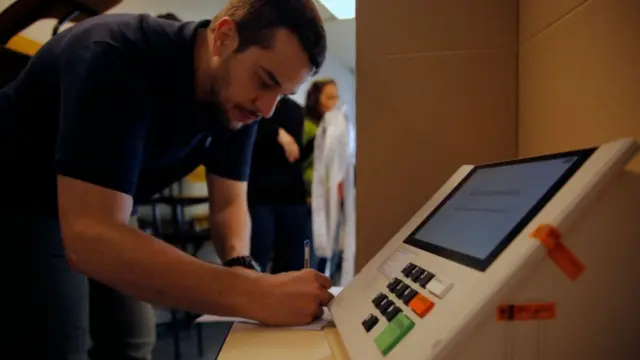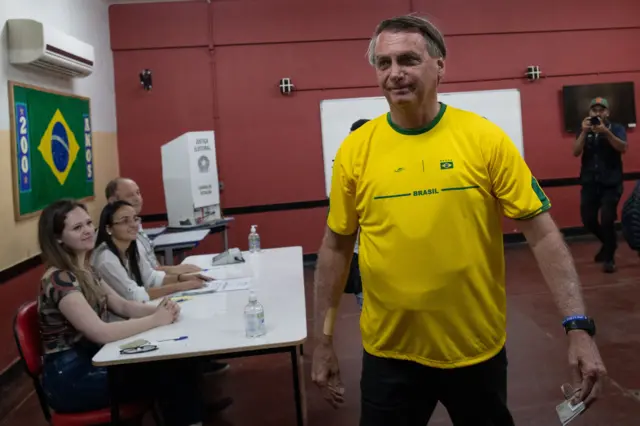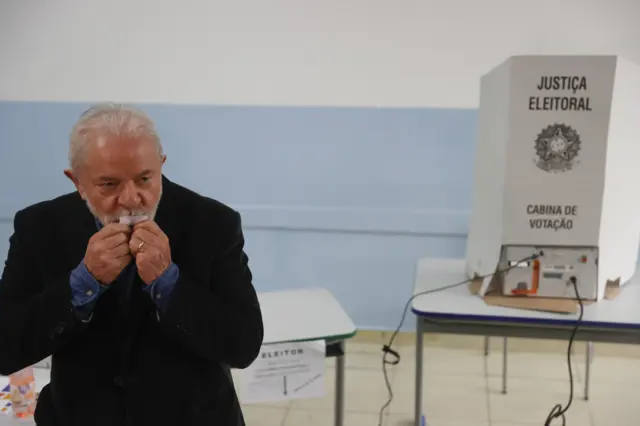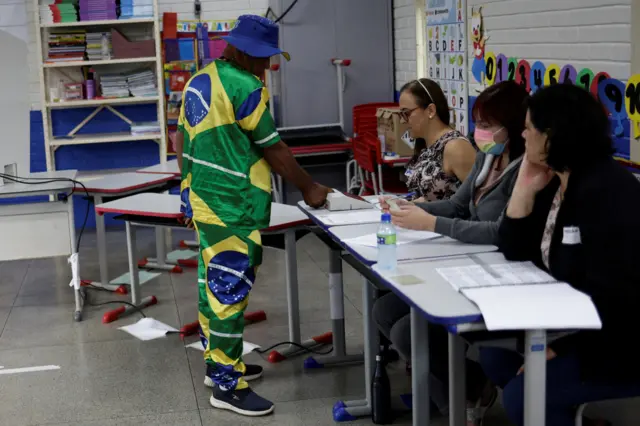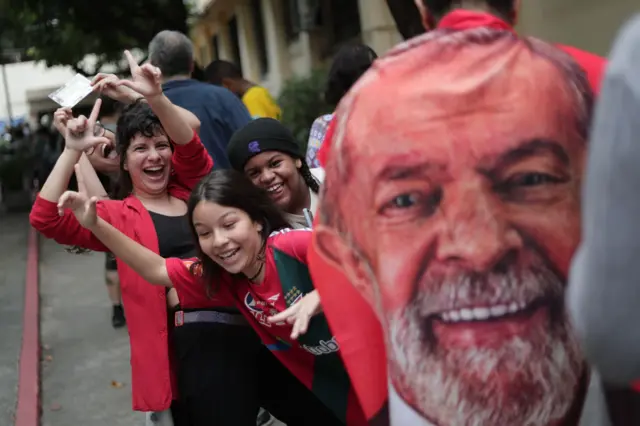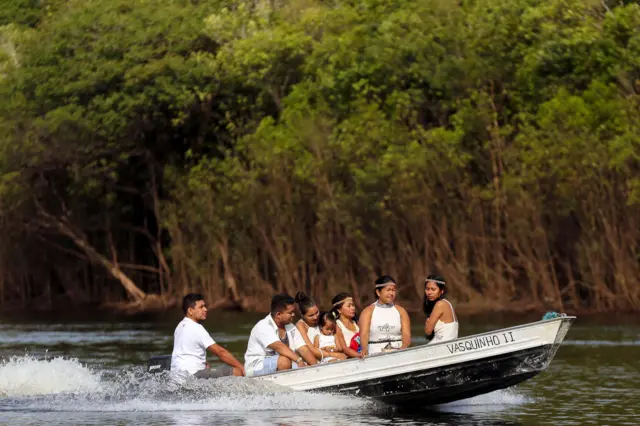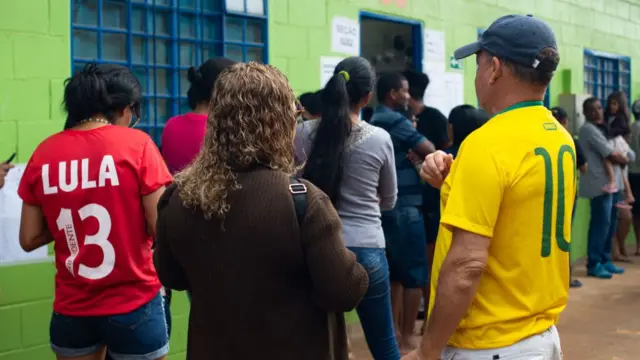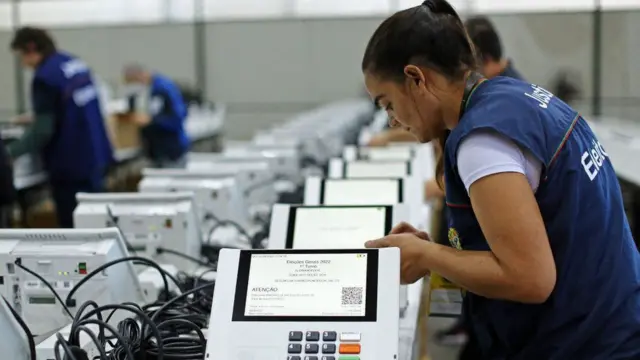Lula supporters expecting a winpublished at 21:44 BST 2 October 2022
 Katy Watson
Katy Watson
South America correspondent in São Paulo
The polling centres were busy here in São Paulo, the places we visited all had lines of people queuing up to cast their vote.
Some were wearing the Brazilian football shirt, the colours an indication of their support for Bolsonaro. Others were dressed in red, or wearing stickers saying "Out with Bolsonaro" – their support for Lula clear.
As the afternoon went on, those dressed in red started walking up to Avenida Paulista, São Paulo’s most famous street. It’s here that Lula will make an appearance if he wins with enough points to avoid a run-off.
His supporters are already gathering here to celebrate what they expect to be win. They will be cheering regardless of whether it's only the first round or an outright victory.


